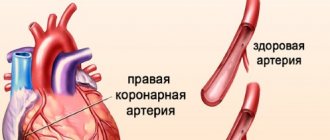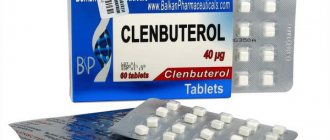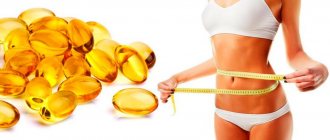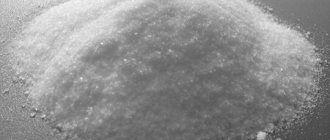Polyunsaturated fatty acids have been known for a long time. But only in recent decades has it become obvious that these substances can be vital for the human body. And taken during weight loss, they can not only help maintain vigor and well-being, but also contribute to more active weight loss. Until relatively recently, fats had a reputation as “bad” substances that contribute to excess weight gain, slow down the process of losing weight, and are generally undesirable in the diet of a person who cares about their health. But as metabolism in the body was studied more and more deeply, the picture began to change. It turned out that fats supplied with food are an integral part of normal metabolic processes, without which the loss of extra pounds and stable weight loss results are often simply impossible. Some of the most valuable from this point of view are “special” fats – polyunsaturated fatty acids. And in particular omega-3.
Should you take fish oil?
It is useful to take fish oil for the following conditions:
- lack of vitamins A and D in the body;
- acute and chronic respiratory diseases;
- various eye diseases;
- wounds, injuries, bone fractures;
- problems with the growth of bones and teeth;
- dry skin and mucous membranes;
- poor condition of hair and nails.
The medicine can also be taken to prevent vascular diseases and rickets.
Advantages of Biafishenol capsules
In addition to a huge complex of vitamins, the supplement contains all kinds of polyunsaturated fatty acids. To realize medical purposes, edible fat is obtained from the liver and muscles of marine fish.
Raw materials for Biafishenol capsules are delivered from Iceland, Chile and Norway. At all stages of production it undergoes triple quality control. Biafishenol preparations have been on the market for 20 years and during this time they have proven themselves, both in terms of quality and availability.
How to use
Oil
Intended for internal use during meals.
For an adult, it is enough to take 1 tbsp per day. l. For children, the dosage is determined by the doctor and depends on age.
Features of administration depend on the purposes for which the medicine is taken, as well as on medical indications.
Capsules
The drug in capsule form should be taken after meals and washed down with a sufficient amount of drinking water. The capsule must be swallowed immediately. You can take up to 6 capsules per day.
The duration of treatment is determined by a specialist and cannot exceed 1 month.
The method of use and dosage may vary among different manufacturers.
What are fatty acids
Fatty acids are a kind of “building material” from which fats are directly composed. Among these compounds there are those in the absence of which adequate functioning of internal organs and systems is impossible. These are unsaturated Omega acids.
The molecules of these substances differ in their structure. They are conventionally divided into two groups:
- monounsaturated, when there is one double bond between adjacent carbon atoms (Omega-9);
- polyunsaturated, if there are two or more such bonds (Omega-3, Omega-6).
The number in the name indicates where this double bond is located. For example, in Omega-3 it is located after the third carbon atom from the end of the chain.
Unsaturated fatty acids help strengthen immune defense and preserve vision. Especially important for children. A child who consumes a sufficient amount of Omega increases resistance to stress, improves memory and concentration. Such children develop better and master educational programs.
Not many people know that fatty acids help get rid of excess weight. They provide the necessary level of “good” cholesterol and reduce the content of “bad” cholesterol. Studies have shown that these compounds stimulate metabolic processes. Food is better absorbed, the body stops accumulating “reserves”. Omega activates the synthesis of the PPAR-alpha protein, which burns subcutaneous fat and fights fatty liver.
Fatty acids are important for athletes. They increase endurance, help the heart cope with increased stress, and normalize blood pressure.
All three types of acids are needed to maintain health, since their effects are slightly different.
Contraindications
Despite the usefulness of fish oil, it has a number of contraindications:
- increased susceptibility to constituent components;
- hemophilia;
- low blood clotting rate;
- open pulmonary tuberculosis;
- excessive calcium levels in blood plasma;
- excessive levels of vitamins A and D in the body.
Relative contraindications include: ulcers, acute and chronic nephritis, breastfeeding, liver and kidney pathologies, heart disease, old age.
Children can be given oil from 3 months. Capsules are contraindicated in children under 7 years of age.
Daily requirement for omega-3
In a healthy person, the daily requirement for omega-3 is about 2 g. This amount can increase under a number of circumstances: carrying and breastfeeding a child, past illnesses, increased risk of cardiovascular diseases, etc. But in the case of health problems, the daily amount of omega-3 3, as well as other important substances, should be determined by the attending physician. It is important to know that an excess of PUFAs is just as harmful as a deficiency, so you should adhere to the recommended consumption levels of these substances. Some of the leading sources of omega-3 foods include the following***:
| Name | Omega-3 content per 100 g | Daily value in % |
| Black and red caviar | 6789 mcg | 250 |
| Mackerel | 5134 mcg | 200 |
| Salmon | 2260 mcg | 200 |
| Anchovies | 2113 mcg | 200 |
Adverse reactions and overdose
If you keep the dose and follow the established dosage regimen, then no negative reactions should appear. Otherwise, an upset stomach, an allergic reaction, and bad breath may occur.
With prolonged use, an overdose may occur, manifested by the following symptoms:
- lack of appetite;
- gagging;
- lethargic and drowsy state;
- stomach upset;
- headache.
If such symptoms appear, maintenance therapy should be started. You should stop taking the drug.
Does it help you lose weight?
Another invaluable quality of fish oil is its effect on extra pounds. Many nutritionists and nutritionists recommend consuming this product in parallel with the diet. Of course, you shouldn’t delude yourself. A spoon a day will not get rid of excess weight. He only acts as an assistant. So to achieve the desired result, you need to stick to a diet and do cardio exercises.
But thanks to this property, it is possible to lose up to 5 kilograms in a month. At the same time, the diet should be free of harmful foods, sweets, fast food, baked goods, processed foods, alcohol and carbonated drinks. And systematic loads will keep the body in good shape. It is important to understand that this is not a panacea; you will have to work on yourself.
Should children be given fish oil?
For children under 2 years of age, the medicine is usually prescribed to prevent rickets. It contains vitamin D, which is necessary for bone growth and a strong immune system. This vitamin is useful in that it reduces the body's susceptibility to heart pathologies and skin diseases. It normalizes heart rate, maintains blood pressure at the desired level, and promotes the development of intellectual abilities.
After taking it, overly active children become more perseverant and calm, they can be better controlled, and they become less irritable.
To make it easier for young children to take the drug, it is produced in the form of capsules that do not have a specific odor and have a pleasant taste.
The instructions say that the oil can be given to babies from 3 months, and capsules can be taken from 6 years.
Doctors advise giving the medicine to those children whose immunity is very weakened. It will also be useful for diseases that occur with complications.
How can omega-3 be useful?
This PUFA can:
- normalize blood viscosity;
- reduce the risk of blood clots;
- regulate the functions of the immune system;
- normalize the functioning of the central nervous system;
- improve cognitive functions (memory, attention, etc.);
- help maintain high energy levels and much more.
All of the above points regarding omega-3 allow us to understand why this PUFA is often so necessary when losing weight. It not only helps maintain health, but also usually reduces the likelihood of a breakdown, when an unusual diet and increased physical activity while losing weight lead to fatigue, bad mood and, as a result, a return to the previous lifestyle.
The benefits and harms of fish oil
Beneficial properties of fish oil:
- can lower blood pressure;
- reduces the likelihood of developing diabetes;
- helps cope with stressful situations and depression;
- slows down the development of malignant tumors;
- nourishes tissues with useful elements;
- activates brain activity.
Harm of fish oil:
- is a strong allergen;
- has contraindications;
- taking on an empty stomach may cause stomach upset;
- high calorie content.
The benefits of fish oil capsules
Capsules prevent the substance from oxidizing, suppress unpleasant taste and aroma, but the composition is no different from a liquid product for internal use. The composition also contains many beneficial vitamins and minerals.
Is it possible to replace omega-3 supplements with food?
Are vitamins and omega-3s beneficial for weight loss? Many people ask this question. The necessary substances can be obtained from food if you create a menu correctly. But when studying the diet of the average person, it turned out that the main amount of PUFAs is omega-6. It is this PUFA that is found in popular vegetable oils (sunflower, corn, soybean, etc.). The situation is completely different with omega-3. Products with a high content of this PUFA are relatively rare in our menu: flaxseed oil, mustard oil, fatty varieties of sea fish, red caviar, shellfish, etc. Therefore, there is not only a deficiency of omega-3 in the diet, but also a violation of the correct ratio between omega-6 and omega-3, which is very important for health. Normally, the ratio should be 10:1 in a healthy person and 5:1 in those with impaired fat metabolism. But instead, the proportion observed is 20–30:1, which is far from the required indicators. But there are several other factors that prevent you from getting omega-3 from food:
- high allergenicity. Foods rich in omega-3 are often included in the list of allergens. And for those whose immune systems are hypersensitive to seafood and nuts, such a source of omega-3 is simply not available;
- high calorie content. If, with normal body weight, you can easily afford mackerel, tuna and other fatty fish, then if you need to lose weight, the amount of such products in your diet should be limited. And in small quantities, seafood, nuts, and vegetable oils cannot meet the needs for omega-3;
- instability of PUFAs. During heat treatment and exposure to UV rays, omega-3 is quickly destroyed and, accordingly, loses its biological value and benefits for the body;
- inconsistent concentration of omega-3. The amount of this PUFA in marine fish or shellfish can vary significantly depending on the living conditions of the animal, the characteristics of its diet and other circumstances.
This is interesting: At the end of a 9-year study conducted by scientists at York University (Canada), it turned out that in terms of health benefits there is no significant difference between fast and slow weight loss. But, given the risks of gallstones, which increase with rapid weight loss, it is still recommended to limit yourself to 0.5–1 kg per week. This rate of weight loss is considered optimal.**
Admission rules
The supplement is obtained from the fat or liver of fish. Available in capsules and liquid form.
The recommended dose for adults is 2 capsules 3 times a day, provided there are no contraindications. In liquid form, the daily dosage is 20-30 ml. Over the course of a year, 3 courses of therapy are completed, each lasting no more than a month. It is optimal to drink fish oil for 3 weeks, and then pause for 2-3 months and repeat for another 3 weeks.
It is advisable not to consume fish oil on an empty stomach, as it can cause harm and cause upset. Fats promote increased bile secretion. Do not exceed the prescribed doses. In increased quantities, the drug can enhance the effect of medicinal herbs and supplements with anticoagulant properties. You can take fish oil at night, but only on a full stomach.
You should not lose weight by taking the drug for a long time. Cod and halibut liver oils are very rich in vitamin A, which becomes toxic when accumulated.
No exercise
There are several methods of taking weight loss supplements, their choice depends on the diet you are following. The following are considered compatible with admission:
- Low-carbohydrate (protein, fat, Kremlin) . The main point is to reduce the amount of carbohydrates in the diet to a minimum. The consumption of fiber is allowed and encouraged. Calories are not limited, nor are fats. The diet should be dominated by vegetables, in addition to legumes and potatoes.
- Low-calorie (basic, moderate and maximally limited) . A ban is imposed on high-calorie foods. The daily norm is 600-800 kcal. Foods that cause an increase in appetite are excluded: flour, alcohol, spices.
Both types of diets require you to drink at least 2 liters of water every day.










